Get a cutting edge, interdisciplinary education from a diverse group of Georgetown experts, thought leaders, scholars and innovators.
Marcus D. King
Professor of the Practice in Environment & International Affairs
Director, M.S. in Environment & International Affairs

Marcus D. King is Director of the MS-EIA and Professor of the Practice in Environment & International Affairs in the Science and Technology in International Affairs Program (STIA) at Georgetown University’s Edmund A. Walsh School of Foreign Service. He holds a joint appointment at Earth Commons, Georgetown’s Institute for Environment & Sustainability.
Prior to Georgetown, King was the John O. Rankin Associate Professor of International Affairs and Director of the Master of Arts in International Affairs Program at George Washington University’s Elliott School. Dr. King previously served as Director of Research and Associate Research Professor.
Dr. King also draws on experience from a number of governmental and non-governmental organizations including CNA Corporation’s Center for Naval Analyses, as Research Director of the Sustainable Energy Institute, and Senior Manager for Energy and Security Programs at a private consultancy. He has held Presidential appointments in the Office of the Secretary of Defense, where he represented the United States for negotiation of the UN Framework Convention on Climate Change, and the Office of the Secretary of Energy. King is Vice Chairman of the Council on Strategic Risks and a member of the Center for Climate and Security’s Advisory Board.
Dr. King maintains expertise in areas including environmental security, climate change resilience and transnational security. His present research focuses on studying how water scarcity effects fragile states. His most recent book is Weaponizing Water: Water Stress and Islamist Extremist Violence in Africa and The Middle East (Lynne Rienner 2023). King holds a Master’s and Ph.D. in International Relations from the Fletcher School at Tufts University.
Emily Mendenhall
Professor and Director, Science, Technology and International Affairs (STIA)
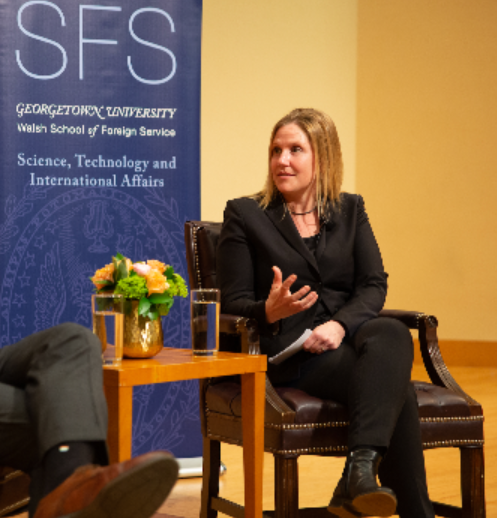
Professor Emily Mendenhall is a medical anthropologist, Professor, and Director in the Science, Technology, and International Affairs Program in the Edmund A. Walsh School of Foreign Service at Georgetown University. She has published widely in anthropology, medicine, psychology, and public health. Her books include Syndemic Suffering (2012), Global Mental Health ( 2015), Rethinking Diabetes (2019), Unmasked (2022), Savoring Care (2025) and Invisible Illness (2026). She has edited several Special Issues on syndemics , migration and health , syndemic theory and methods , and interembodiment . Professor Mendenhall was awarded the George Foster Award for Practicing Medical Anthropology by the Society for Medical Anthropology in 2017. In 2023, she was awarded the Guggenheim Fellowship from the John Simon Guggenheim Memorial Foundation.
Mendenhall’s new book, Invisible Illness: A History, from Hysteria to Long Covid , is a moving cultural history of disability and a powerful call-to-action to change how our medical system and society supports those with complex chronic conditions. This book considers, from lupus to Lyme, how invisible illnesses are often dismissed by everyone but the sufferers. Why does the medical establishment continually insist that, when symptoms are hard to explain, they are probably just in your head? Inspired by work with long Covid patients, this book traces the story of contested conditions from hysteria to long Covid to show why both research and practice fail so many. Mendenhall points out disconnects between the reality of chronic disease—which typically involves multiple intersecting problems resulting in unique, individualized illness—and the assumptions of medical providers, who behave as though illnesses have uniform effects for everyone. And while invisible illnesses have historically been associated with white middle-class women, being believed that you are sick is even more difficult when you’re Black, trans, poor, young, disabled, or undocumented. Weaving together cultural history with intimate interviews, Invisible Illness lifts up the experiences of those living with complex illness to expose the failures of the American healthcare system—and how we can do better. She has written about Long COVID in Social Science and Medicine , Scientific American , and Current History . Mendenhall’s award-winning trade book Unmasked: COVID, Community, and the Case of Okoboji investigates how people responded to COVID-19 in her hometown in northwest Iowa. Unmasked explores political priorities, cultural squabbles, and business interests that undermined public health efforts when no mandates were in place. Mendenhall has written about this research in Vox , Scary Mommy , Scientific American , and academic journals, including Social Science and Medicine and Global Public Health . Her work has been highlighted in COVID Quickly at Scientific American , Talk of Iowa , Psychology Today , Campaign for the American Reader, Schools of Foreign Service News , The E’Ville Good , and Iowa Science Interface . Unmasked was awarded the Norman L. and Roselea J. Goldberg Prize for best book of the year in art and medicine from Vanderbilt University Press in 2022. Professor Mendenhall recently completed a four year study of syndemics in Soweto, South Africa. The study was derailed in 2020, when the COVID-19 pandemic emerged, influencing writing in Scientific American , Think Global Health , and The Conversation . Publications from this project span many topics, including syndemics, mental health during the pandemic, psychometrics, healing through God, spirituality and the Church, and flourishing. Some of these articles have been published in Nature Human Behavior , Social Science and Med icine , SSM-MH , Global Public Health , and Psychological Medicine . A summary of this work can be found on the Nature Social and Behavioral Sciences Blog.
Megan Lickley
Assistant Professor, Edmund A. Walsh School of Foreign Service
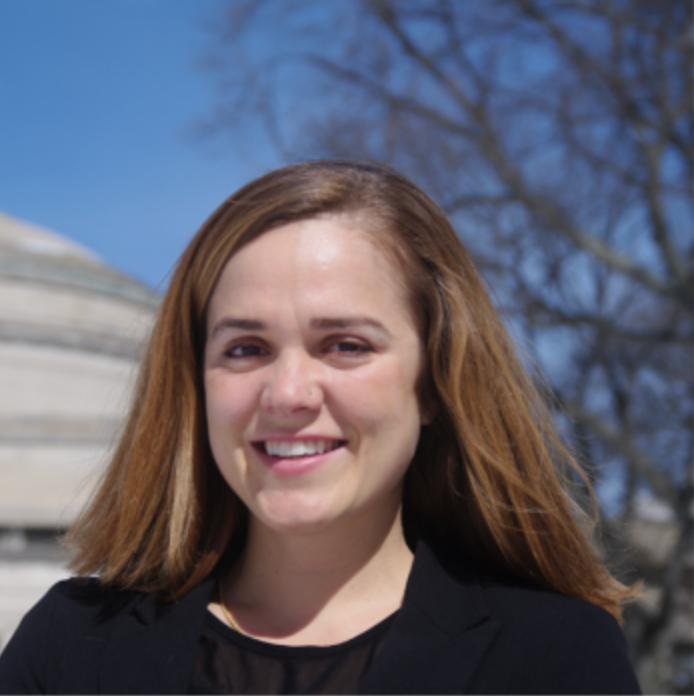
Megan Lickley’s research examines the drivers and impacts of climate change. She uses tools from data science that bridge climate science, math and policy in order to assess a range of outcomes and their likelihood of occurring. This involves combining various Earth system models with in situ measurements and population data in a rigorous statistical framework. I apply these methods to core climate issues including water resources, the duration of rapid climate change, and sea level change. Her recent work has focused on evaluating global compliance with the Montreal Protocol, which regulates the production of ozone depleting substances and their replacement chemicals, many of which are potent greenhouse gases. Before starting her PhD she spent time in the Democratic Republic of Congo teaching math courses at the Catholic University of Bukavu. She’s consulted for the World Bank in Uganda, contributing to a climate change impacts report and strategy plan. She is a co-author to the ongoing International Ozone Assessment.
Peter Marra
Dean, Earth Commons Institute for the Environment and Sustainability and Laudato Si’ Professor of Biology and the Environment
Laudato Si’ Professor, Biology and the Environment; Professor, McCourt School of Public Policy
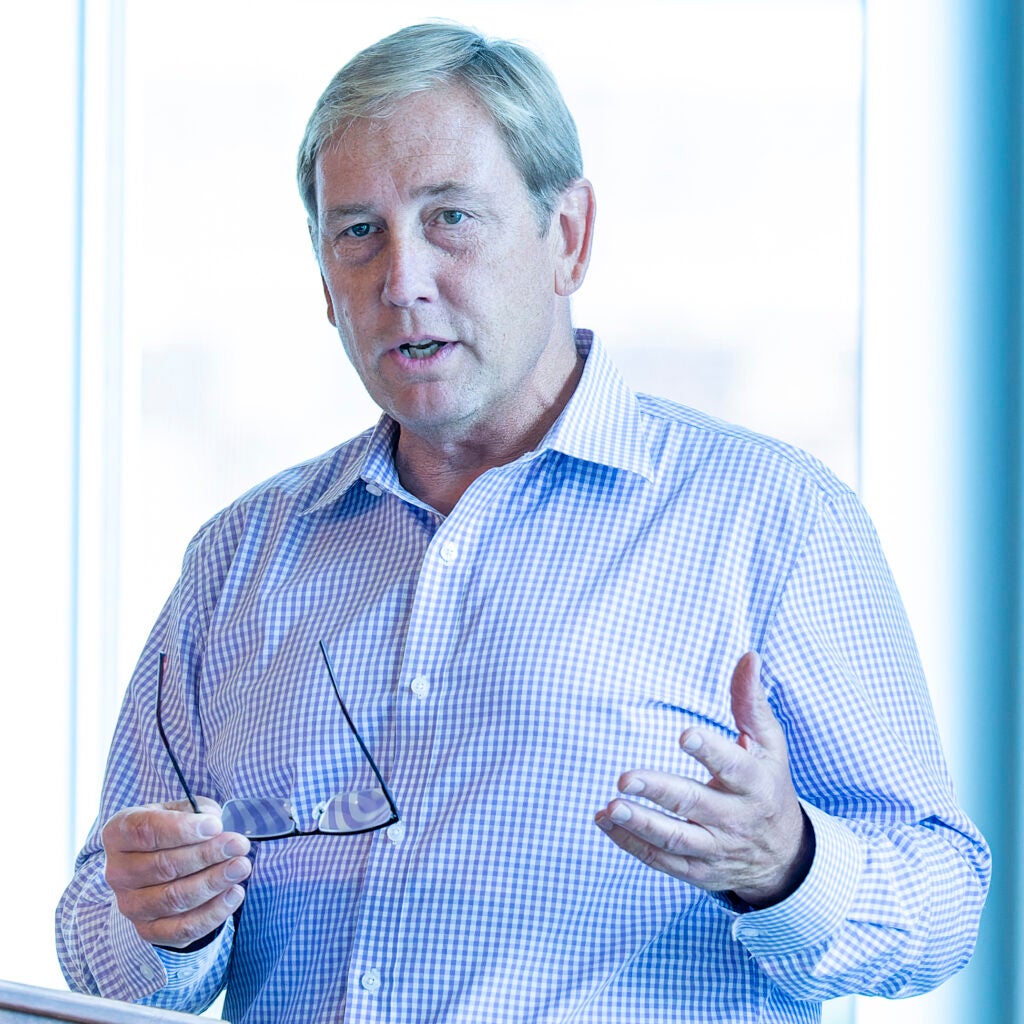
Dr. Peter P Marra is the Dean of the Earth Commons—Georgetown’s Institute for the Environment and Sustainability—and Laudato Si’ Professor of Biology and the Environment. Marra uses birds to help us define and understand broad environmental issues, tackling contemporary conservation challenges by addressing fundamental knowledge gaps at the intersection of ornithology, ecology and conservation biology. His transformative work—including quantifying the loss of 3 billion birds from North America, the impacts of climate change, the astounding ecological destruction of outdoor cats and emerging diseases such as West Nile virus—explores the interaction between humans and our environment and poses critical questions to humanity about the environmental costs of urbanization and globalization. His work spans biology, engineering, physiology, and biogeochemistry, and has helped ignite new research into the study of full life cycles of migratory animals while furthering technological advances, including the use of genetics, stable isotopes and remote tracking technologies. With over 260 peer-reviewed papers, Marra uses integrative techniques and rigorous quantitative approaches, leveraging data to link fundamental ecological advances to address conservation problems and reimagine approaches that inform policy. Over 55 current and former students and his position as Founding Director and Dean of the Earth Commons, Georgetown University’s new institute for environment and sustainability, demonstrate Marra’s dedication to moving research to implementation and educating the next generation of diverse scientists.
Jeremy T. Mathis
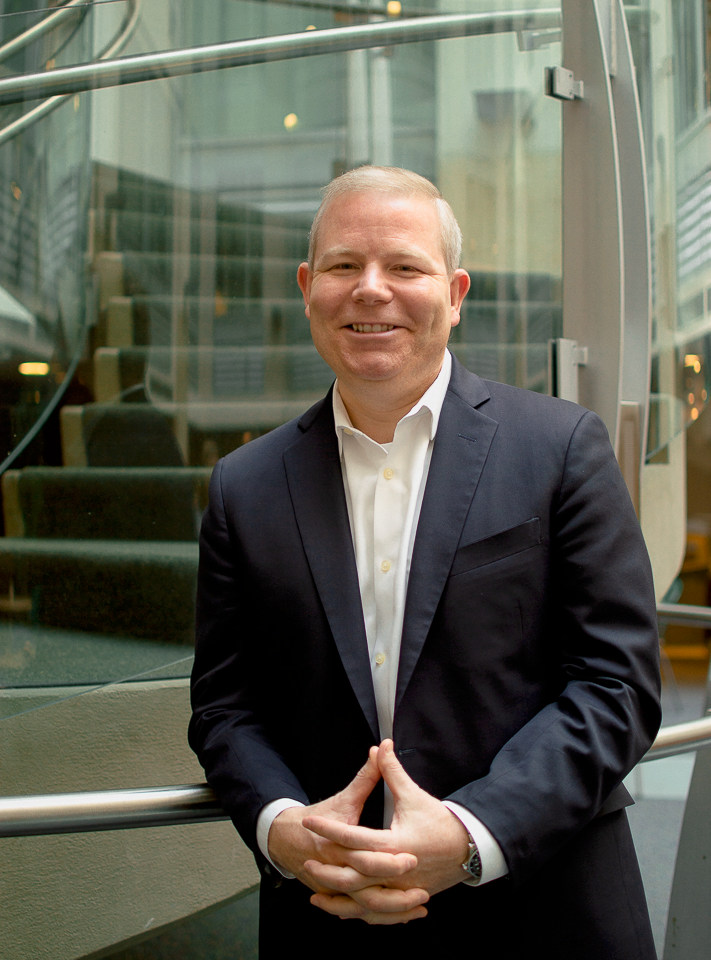
Jeremy T. Mathis, Ph.D. is a climate security professional and has been an Adjunct Associate Professor in the School of Foreign Service at Georgetown University. since 2018. He has published more than 100 peer-reviewed journal articles that have been cited more than 15,000 times. Jeremy has chaired numerous national and international working groups, visiting more than 60 countries in a professional capacity. From January to October 2018, he served as a science policy advisor in the Office of U.S. Senator Lisa Murkowski (R-Alaska). From 2012 to 2017, Jeremy worked in various programmatic and executive roles for the National Oceanic and Atmospheric Administration (NOAA), where he specialized in global climate issues, including a rotation at the Office of Science and Technology Policy at the White House. From 2007 to 2012, he was an Assistant Professor at the University of Alaska Fairbanks and the founding Director of the first U.S. Ocean Acidification Research Center. Dr. Mathis received his undergraduate degree in chemical engineering and his Ph.D. in chemistry from the University of Miami (FL).
Lucy Zipf
Associate Teaching Professor, M.S. in Environment & International Affairs
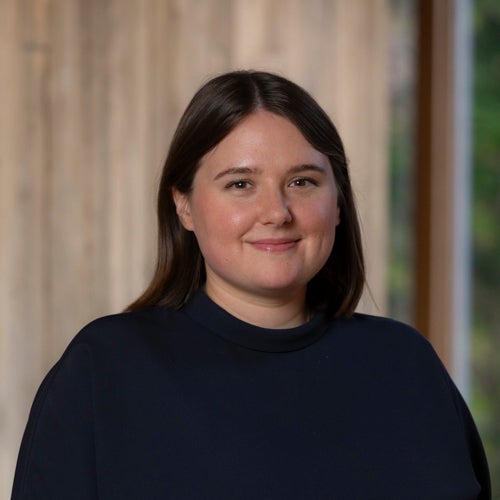
Dr. Lucy Zipf is an ecologist studying the integrated impacts of co-occurring global changes–climate, habitat, and conservation management–on biological communities. Dr. Zipf uses observational and experimental field studies with statistical modeling approaches to forecast changes in bird and insect phenology and reproductive success. Dr. Zipf also works closely with community science organizations to involve stakeholders in her research. In her classroom, Dr. Zipf prioritizes hypothesis-driven exploration of the natural and built environment. Dr. Zipf works with students to build the foundational knowledge needed to understand big environmental problems and then reexamine their and other environments with critical thought.
Marisa O. Ensor
Adjunct Lecturer, Justice and Peace and Affiliate Researcher, Earth Commons
Senior Climate Research Fellow – Georgetown Institute for Women, Peace & Security Justice and Institute for the Study of Int’l Migration, School of Foreign Service
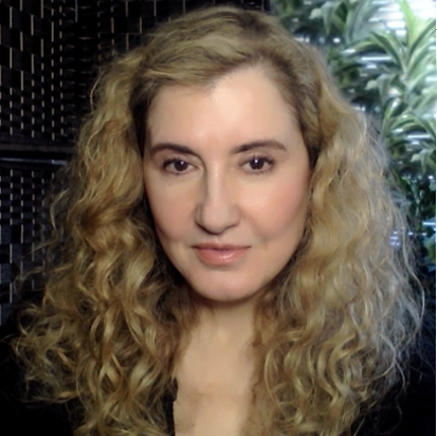
Dr. Marisa O. Ensor is an environmental security specialist with a background in the socio-environmental dimensions of Climate Change, Disasters, Conflict, and Displacement. She is currently an Affiliate Researcher at Earth Commons: Georgetown Institute for Environment and Sustainability. Combining science and rights-based approaches, her work examines intersectional gender, youth, and Indigenous perspectives on human-nature interactions in a context of increasing global and local insecurity. Her courses – e.g., “Gender, Climate and Security,” “Climate, Conflict and Displacement,” “Research Methods” – draw on 15+ years of teaching experience combined with insights from her own scholarly and policy-oriented fieldwork. Dr. Ensor has conducted fieldwork in over 25 environmentally fragile and conflict-affected countries of Africa, Asia, Europe, the MENA region, and Latin America. She has consulted with various UN agencies (UN Women, IOM, UNHCR, UNICEF, OHCHR), the Economic and Social Research Council, USAID, and the United States Institute of Peace. She has most recently completed a multi-disciplinary project on the gender-climate-security nexus in 5 countries (15 case studies) across the world, focusing on the identification of context-specific solutions. Her current work investigates climate adaptation strategies on coastal communities and Small Island Developing States (SIDS) – both in the Indo-Pacific and Caribbean regions – focusing on the co-identification of context-specific solutions to water insecurity. A central component of this project are the critical linkages between water, bio-cultural heritage, a plurality of knowledge systems – including Indigenous, local, and traditional ecological knowledge (ILK/TEK) – and community resilience in processes of climate adaptation. Her research has resulted in numerous publications including five books, over 50 book chapters and journal articles, and dozens of technical and policy-oriented reports.
Sir Andrew Steer
Distinguished Research Professor of the Practice in Environment and Economics
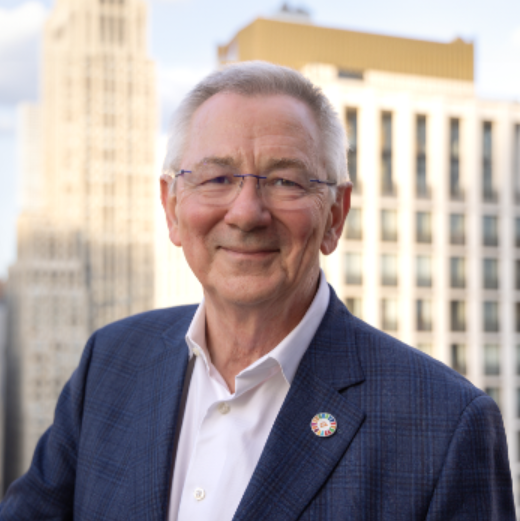
Sir Andrew Steer, PhD, is Distinguished Research Professor of the Practice in Georgetown’s School of Foreign Service and the Earth Commons. He is also Professor of Practice at the London School of Economics.
Sir Andrew served, most recently (2021-2025) as the inaugural President and CEO of the $10 billion Bezos Earth Fund, the world’s largest philanthropy for nature and climate, investing in systems change across nature protection, food and agriculture, industrial and energy decarbonization, financial reform, and the application of AI and big data. He was President and CEO of the World Resources Institute (2012-2021), leading a team of 1600 professionals at an NGO consistently ranked as the top Think Tank/Do Tank on sustainable development. Previously, he served as Special Envoy for Climate Change at the World Bank, Director General at the UK’s Department of International Development, and Director of the World Bank in East Asia. In 2024 he was knighted by King Charles in recognition of “sustained contribution as one of the world’s best-known leaders in global sustainable development economics”; and was named by Forbes as one of the world’s 50 most influential environmental leaders, in its inaugural Sustainability Leaders awards. He serves on the UK Foreign Secretary’s External Foreign Policy Board, is co-chair of the World Economic Forum’s Global Futures Council on Innovative Finance; and a member of the boards of BRAC, the Global Energy Alliance for People and Planet, and the China Council for International Cooperation on Environment and Development. He was educated at St Andrews University, the University of Pennsylvania, and Cambridge University, and has a PhD in Economics and Finance. He is married to Dr. Liesbet Steer. They have two children: Charlotte, an environmental professional, and Benjamin, an Indie Pop artist.
Kristen Nieves
Program Coordinator, MS-EIA
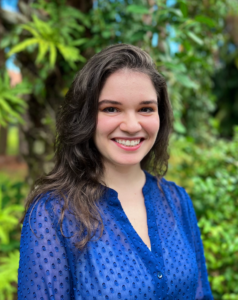
Kristen plays an active role in fulfilling all academic and administrative responsibilities to support students, applicants, and faculty within the MS-EIA program. She helps administer all day-to-day and on-the-ground activities by working closely with graduate students, collaborating with the program directors, and acting as a liaison in connecting MS-EIA students with a wide variety of University resources. Kristen is passionate about advancing sustainability efforts locally and internationally. Kristen has several years of experience in the higher education and environmental nonprofit sectors. She has a background in international studies, sustainability, and sociology after attending the University of Florida and the Honors College at Miami Dade College.
Shannen Holback
Assistant Director of Admissions and Marketing, MS-EIA
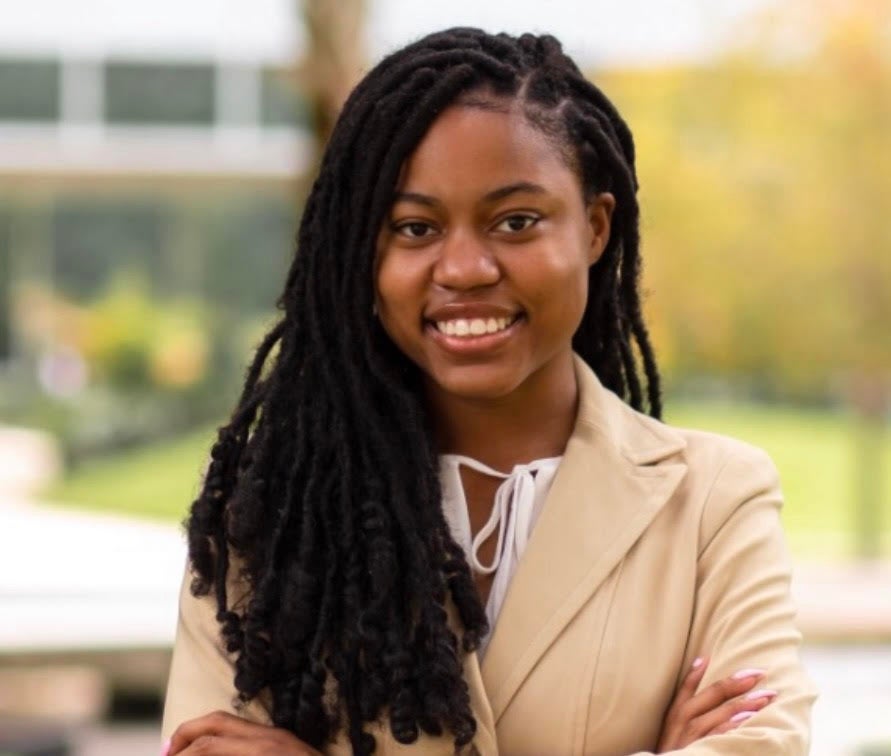
Shannen Holback is the Assistant Director of Admissions and Marketing for the M.S. in Environment & International Affairs (MS-EIA) program. Shannen is passionate about supporting students and staff and the various sustainability and environmental programs taking place. She creates and implements recruitment and marketing events and initiatives, as well as assisting with the admissions process. Shannen speaks with prospective students to help them gain more information about the MS-EIA program. She has a background in law with a bachelor’s degree in Legal Studies and a master’s in Educational Leadership from the University of Central Florida.
Daniel Lam
MS-EIA Student Program Assistant

Daniel Lam is a MS-EIA student concentrating in Environmental Science and International Security. Prior to joining the MS-EIA cohort, he completed a BA at Dartmouth College, majoring in Government with a minor in Policy Rhetoric. During his time at Dartmouth, Daniel served as a research assistant in several labs, including one focused on regenerative agriculture. After graduating, he worked at the Irving Institute for Energy and Society as a program coordinator. At the Irving Institute, Daniel planned and executed logistics for research, experiential learning, and community engagement programming. He also worked with the research director to convene faculty from across the schools of engineering, business, and arts & sciences to foster interdisciplinary dialogue and cross-pollinate ideas to inspire future research on the energy transition.
Daniel is also a twice Emmy-nominated broadcast journalist who has produced and reported from Maine to Michigan and from a private family house to the White House. His journalism experience ranges from college radio to NPR and MSNBC, and most recently includes roles with NBC Nightly News, the NBC News 2024 Decision Desk, and the NBC News Special Reports team. Daniel’s journalism has also been recognized by the White House Correspondents Association and Asian American Journalists Association.
Amineh Najam-ud-Din
MS-EIA Student Program Ambassador
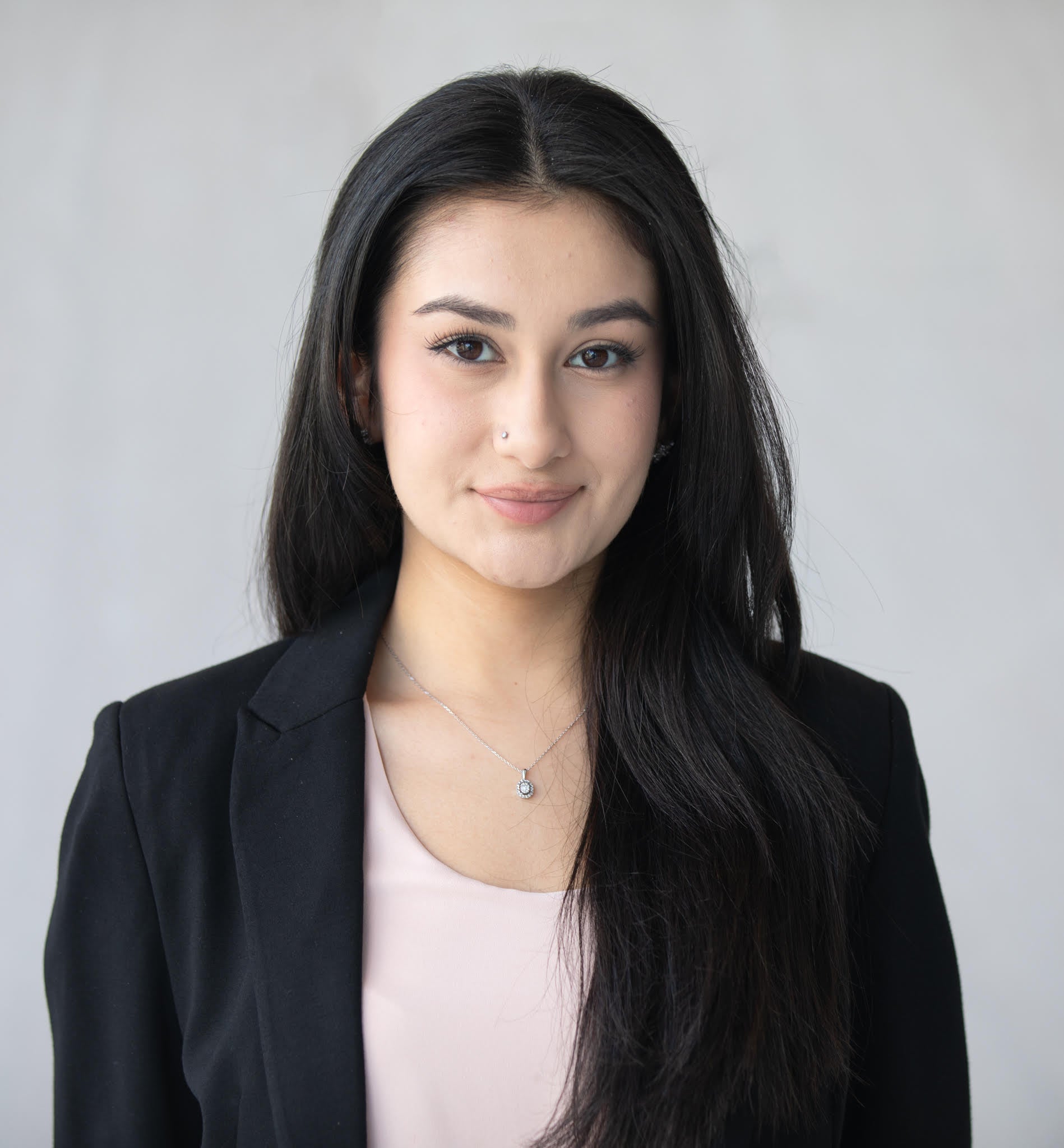
Amineh Najam-ud-din is a second-generation Pakistani student, born and raised in Boston, Massachusetts. Amineh completed her undergraduate degree at Boston University’s Pardee School of Global Studies, where she earned a B.A in International Relations, with a minor in Public Policy Analysis and a specialization in International Systems and the Middle East and North Africa. Upon graduation, she returned to Lahore to intern with Supreme Court Justice Syed Mansoor Ali Shah on digitization and the future of sustainability in Pakistan. Amineh worked as a Program Manager for the The Center for Strategic and International Studies’ (CSIS) Humanitarian Agenda, where she focused on humanitarian response to climate crises. This brought her to Georgetown’s M.S. in Environment & International Affairs program, with the goal of building the technical toolkit and scientific background to contribute to actionable and equitable climate policy at the global scale..
Luisa Struck
MS-EIA Student Program Ambassador
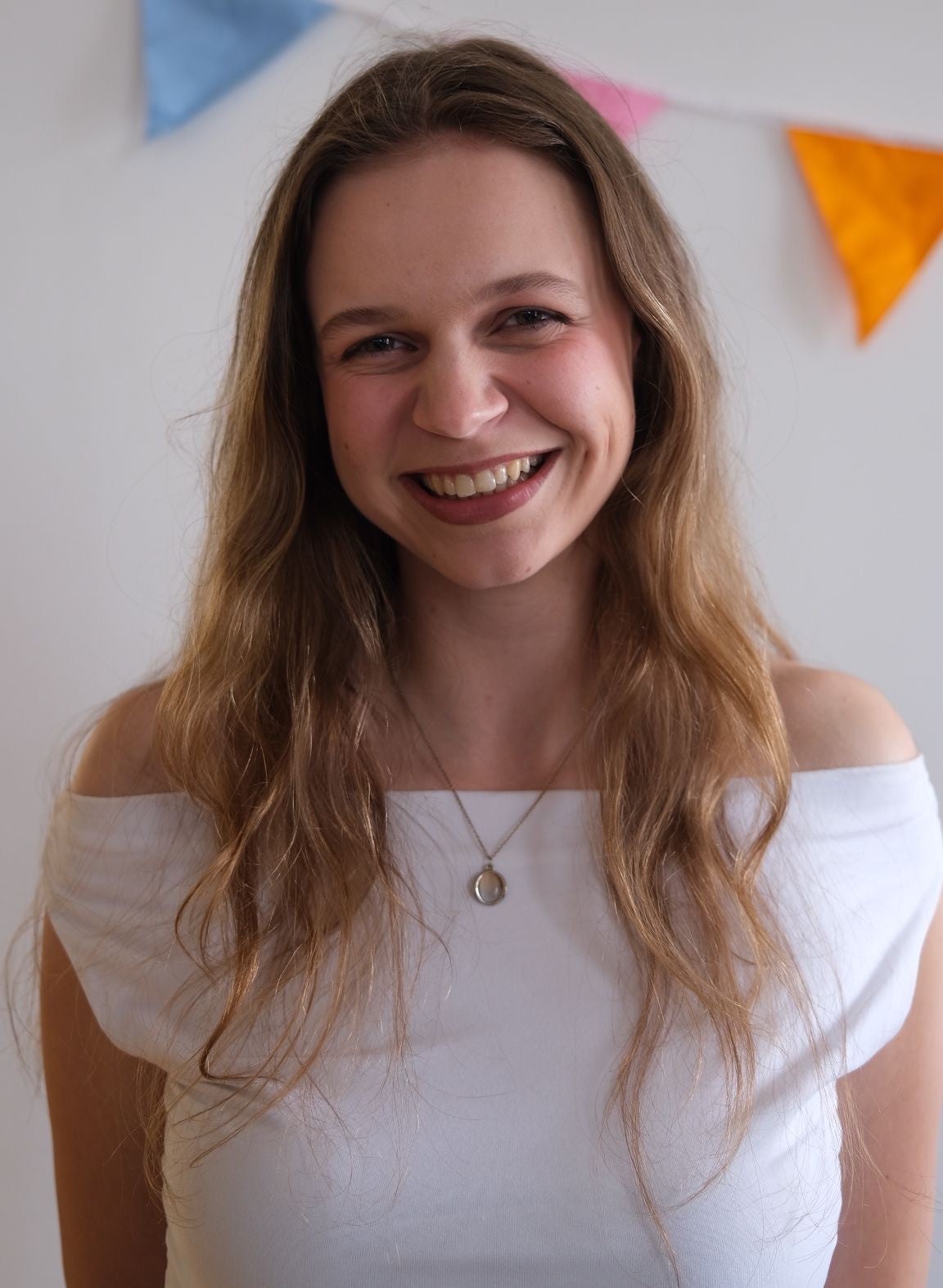
Luisa Struck is an MS-EIA student who grew up in Germany, the UK, and the U.S. She completed her B.A. in International Relations at King’s College London in 2025, where she established a strong foundation in global affairs and policy. Although she used her time in her undergraduate studies to specialize in climate and sustainability issues as much as possible, she was lacking the scientific training to technically understand the environmental challenges that we face. This motivated her to join the M.S. in Environment & International Affairs program, which integrates environmental scientific literacy in a way that is accessible to her social science background. Luisa is particularly interested in the intersection of international development and sustainability, with a focus on ensuring the equitable inclusion of nations that have been historically disadvantaged in the global fight against climate change. She is also passionate about the green energy transition, especially within a European context.

